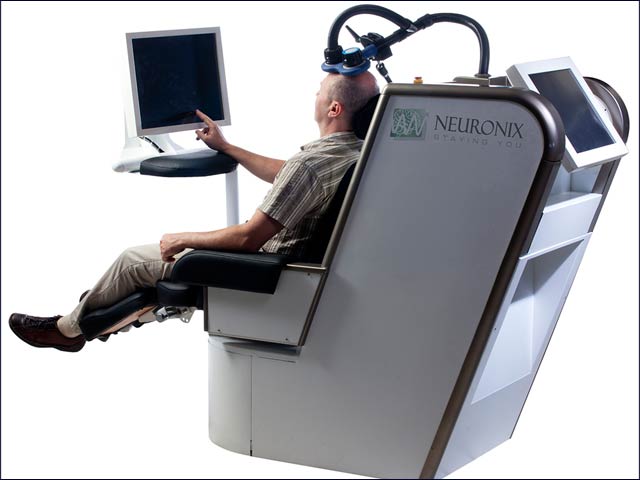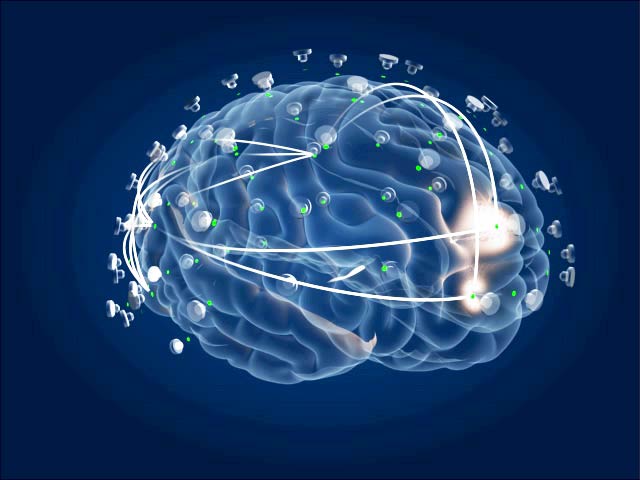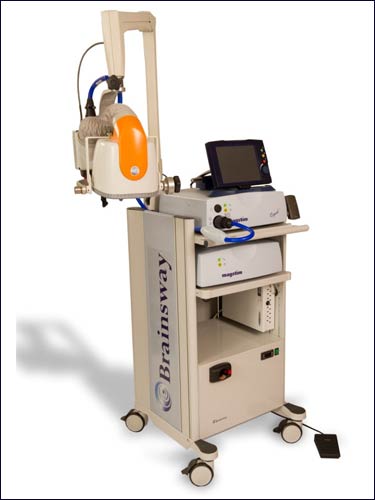By Avigayil Kadesh
In May, Israel’s
Avraham Pharmaceuticals announced the beginning of a Phase 2 study of ladostigil, an Israeli-developed drug candidate to treat mild cognitive impairment -- one of the signs associated with the onset of senile dementia and Alzheimer’s disease.
Ladostigil is just the latest Israeli advance in the quest to help the global healthcare community prevent, treat and better understand Alzheimer’s disease (AD), a fatal and progressive brain disorder that is the most common cause of dementia worldwide.
AD affects about one in 20 people age 65 or older, accounting for 60-80 percent of dementia cases. In 2010, 5.4 million US citizens were affected by AD, where it is the sixth leading cause of death. One in eight Americans will develop the disease at some point, while more than six million are affected in Europe. About half of AD patients also suffer from depression and up to 40% exhibit symptoms similar to Parkinson’s disease as well.
Ladostigil mainly relieves behavioral and psychological symptoms of AD including depression and anxiety. In lab animals, this “neuroprotective” drug also slows the progression of AD symptoms for sustained periods of time and actually modifies the pathology of the disease. The new trials will determine if it has the same effects in humans.
Ladostigil was developed by Prof. Marta Weinstock-Rosin of the Hebrew University of Jerusalem, inventor of the AD medication marketed by Novartis as Exelon; and Prof. Moussa Youdim of the Technion Israel Institute of Technology, inventor of Teva Pharmaceuticals’ Azilect for treating Parkinson’s disease.
With funding from Teva, the two scientists combined their innovative drugs to develop ladostigil as a more powerful and long-lasting treatment. It was first synthesized by Prof. Michael Chorev at the Hebrew University and is exclusively licensed to Avraham Pharmaceuticals.
The 36-month ladostigil trial will include at least 200 patients diagnosed with mild cognitive impairment in 16 centers in Europe and Israel. At the same time, a parallel 26-week Phase 2 trial is taking place in 20 sites in five countries across Europe, looking specifically at ladostigil’s effectiveness against AD in 200 patients. Results are expected by the end of 2012.
Here are some of the other Israeli contributions to the field of AD research:
• NeuroAD, an electromagnetic stimulation system developed by Yokneam-based
Neuronix, is the first medical device in the world to receive approval for treating mild to moderate AD. It appears to change the course of AD and allow patients to regain cognitive skills. Clinical trials in Europe and the United States are revealing that a few weeks of this non-invasive treatment deliver better measurable results than medications in cognitive improvement.

NeuroAd by Neuronix
Introduced last July at the annual International Conference on Alzheimer’s disease in Paris, the company’s solution is based on a patent-pending technology that electromagnetically stimulates areas of the brain responsible for memory and learning, making them receptive to simultaneous tailored cognitive training. Dr. Jonathan Bentwich invented the platform technology to treat his mother, a former physician and AD patient.
• The Herzliya-based company
ElMindA aims to revolutionize diagnosis, treatment and monitoring of AD and other brain disorders by opening a new window on the workings of the brain. Its trademarked, non-invasive brain network activation (BNA) technology has shown promise in clinical studies. Within five years, it could become standard equipment for every psychiatrist and neurologist in the world.

The ElMindA helmet
During the painless procedure, patients sit at a computer for 15 to 30 minutes performing a specific task many times (the repetition allows the device to sift out unrelated brain activity) so that the device can map network activation points in the brain in the form of a three-dimensional image.
BNA is sensitive enough to show subtle differences in the severity of the condition from one day to another, and it can optimize drug dosing by monitoring the changes in brain network activities as the drug takes effect. It can also help identify patients best suited to test new drugs.
• The Israeli company
Brainsway recently pioneered a medical device for deep-brain electromagnetic stimulation to help alleviate addictions and other brain disorders including AD.
The device consists of an electromagnetic energy-emitting coil attached to a helmet. The patient wears the helmet for about 15 minutes while sitting quietly, allowing the coil to determine what parts of the brain should be stimulated and how intensively. It can be activated at varying frequencies and patterns for therapeutic results over a course of time.

The Brainsway device
Trials are taking place at 22 centers throughout Europe, the United States, Canada and Israel, including Harvard and Columbia universities. The patent on the Brainsway coil is licensed exclusively to the company by the Weizmann Institute of Science and the US National Institutes of Health.
• An Alzheimer’s vaccine could one day become available thanks to Tel Aviv University researchers led by neurobiologist
Dan Frenkel. Actually, the two-in-one liquid protects against both AD and stroke. The two are associated because people with AD are at increased risk of stroke due to vascular damage in the brain. The spray vaccine appears to repair this damage by activating the body’s own immune system. The vaccine would be given as a nasal spray to people who are at risk, those who show very early AD symptoms and those who have already suffered strokes.
• Another approach toward a vaccine against AD is under development at
NasVax in Ness Ziona. The company’s patented BBS technology, developed by Prof. Beka Solomon of Tel Aviv University, is based on antibodies shown to prevent the progression of AD in lab animals. Clinical studies have delivered some promising results, and two BBS product applications are being studied further.
• Tel Aviv University biochemist
Illana Gozes, co-founder of Allon Therapeutics, has unveiled new research showing how the company’s lead product candidate, the neuroprotective davunetide, prevents nerve-cell death. It is currently being tested in a clinical trial on people with mild cognitive impairment. Gozes shared the results at the 12th International Stockholm/Springfield Symposium on Advances in Alzheimer Therapy in May, based on her recent
article in the International Journal of Alzheimer’s Disease.
• Another Tel Aviv University scientist, neurobiologist
Daniel Michaelson, has shown the effects of diet and environment on carriers of a gene called APOE4, which is present in half of all AD patients and in 15 percent of the general population. Eating foods high in omega-3 oils (such as fatty fish) and low in cholesterol appears to significantly reduce the negative effects of the gene.
Michaelson’s research also showed that APOE4 is a “bad” form of a gene that everyone has. Lab mice with the “good” form reacted to a mentally stimulating environment by making healthy new nerve connections in their brains. But the same environment led to nerve cell death in APOE4 carriers.
Michaelson, who has been researching AD over the past 16 years, says this finding would contradict currently accepted wisdom that a stimulating environment staves off the disease. For those with APOE4 it appears to have the opposite effect. However, their nutritional studies indicate that a healthful diet may counteract the problem.
• A collie shorthair from Finland named Polly was trained in Israel as the world’s first
Alzheimer's Aid Dog specifically for people suffering from early-onset AD. Professional dog trainer Yariv Ben Yosef, social worker Daphna Golan-Shemesh and electrical engineer Avi Rabinovich perfected the training program from Ben-Yosef’s Centre for Service and Therapy Dogs founded in 1994. Since then, more than 500 dogs worldwide have been trained and placed with companions based on the Israeli method.
While out for a walk, the dogs know to bring their masters back upon hearing the word “home” -- a codeword that the patient is feeling disoriented – or upon hearing a distress signal sent by a worried caregiver via SMS to a small device worn by the patient. The pooches also keep depression at bay by playing with their companions regularly.
• Savion memory-enhancing training is the first computer program in the world designed to provide cognitive stimulation for people suffering from dementia. Developed by occupational therapists at Melabev, a Jerusalem-area chain of day centers for AD patients, Savion slows mental deterioration while maintaining and improving memory in early- and middle-stage victims of the disease. Verbal, numerical and geometrical exercises, plus memory training tasks, are adjustable to match each user’s level.
In a study at Ben-Gurion University of the Negev, AD patients using Savion for 30 minutes twice a week over four weeks showed improved cognition, language skills, memory and organizational aptitude. In response to global demand after its introduction in 2010, Savion is now available in Russian, Hebrew, English and Greek versions. French and Arabic versions are to come.
• A cinnamon extract previously shown to have powerful anti-viral properties also seems to delay the progress of AD. Tel Aviv University doctoral student Anat Frydman-Marom found that the extract, dubbed CEppt by the TAU scientist who isolated it a decade ago, can delay the effects of five aggressive strains of AD-inducing genes, according to a
multi-lab research paper she co-authored for the medical journal PLoS ONE.
In Petri dishes and also in laboratory flies and mice, CEppt dissolved amyloid plaques, the sticky buildup that accumulates outside nerve cells and is known to lead to AD. One day the extract could be given as a food additive, drug or vitamin to younger people to prevent AD later in life.